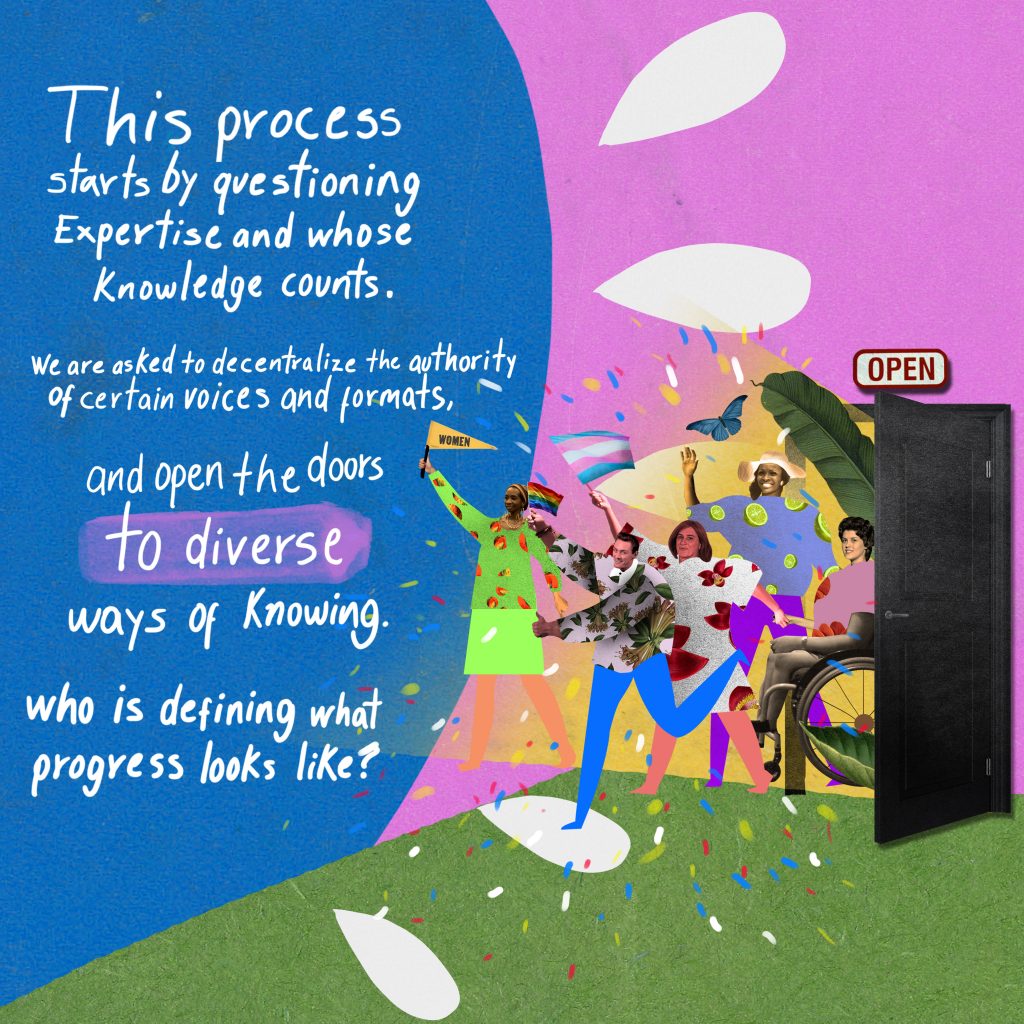Leer esta historia en español.
The work of shifting power is fundamentally the work of changing our gaze. People act on how they see, and to change how we see, is to radically change how we act. By not exploring other forms of expressing, looking and creating, we’re limiting ourselves.
The development space is fixated on the written word. We are inundated by a constant flow of reports, research papers, figures, strategic frameworks: ‘the literature’. Behind every new buzzword and piece of jargon is a faith that to change words is to change the world.
Yet we keep coming back to the same sobering realization: concepts are not enough. Don’t get me wrong, we absolutely need to re-word a lot, challenge outlived vocabulary, and support the journey of reclaiming representation. But the enormous challenge of shifting stuffy power dynamics and dominant narratives asks us to go beyond changing how we talk, to changing how we see the world and how we act.
“In the midst of such uncertainty and overlapping crises, we need artists like never before to help us reflect, creatively reimagine and bring to life a vision for radically better futures.”
During these two years of the Power Shifts project, the urgency of rethinking how we communicate has come up many many times. I have been frustrated by development communications that only speak in one way, to one particular audience and in one language (you can guess which one). There’s been clear ruptures with this narrow approach coming from young organizations and movement spaces, but the more old school organizations are struggling to keep up. Committing to ‘decolonizing’ our ideas begins with making knowledge accessible, plural, collaborative. It means constantly opening up to diverse formats as well.
So, here’s a question I’ve returned to: how can we de-center textual knowledge to help us deeply listen to, and communicate, stories of change, structural injustice, and transformative practice?
I don’t have precise answers, but I wanted to approach this challenge from a place of play and creative collaboration. In particular, I wanted to reach out to visual artists to find new ways of building bridges across formats. In the midst of such uncertainty and overlapping crises, we need artists like never before to help us reflect, creatively reimagine, and bring to life a vision for radically better futures.
The result of this collaboration is our very own Virtual Gallery for Shifting Power, an initiative with two artists that aimed to capture the lessons and teachings cultivated over the two years of the Power Shifts project.
For this first exhibit, called “‘Development’: a visual story of shifting power”, I collaborated with Colombian collage artist Hansel Obando. Together, we wanted to tell the story of ‘development’, from its origin to its current challenge, from its contradictions to its possible horizons. Our guiding principles were the twin notions of decolonization and intersectionality: moving away from the unequal power structures that reinforce legacies of colonialism, and advancing explicitly anti-racist and feminist agendas.
Following these principles, through our collaboration we challenged each other to leave behind tired language and imagery. Collage, the medium that Hansel works with, can be seen as a metaphor for the practice of re-making and re-assembling our world. It allows us to clearly grasp what stories are – assemblages of fragments – and what storytelling is: a work of careful piecing together.
We invite you to take a look at the visual story below. It’s a small step, but hopefully it can inspire more bridge-building and critical thinking. These images are published under a Creative Commons-Attribution-NonCommercial-ShareAlike 4.0 International license. So please go ahead and download, print and share them everywhere! Show them to your colleagues, plan a session to go through them together as a way to structure a conversation about ‘shifting power’, or dig deeper into a selection of images. (Just remember to please credit/tag Hansel Obando and María Faciolince when using them.)
Illustrations: Hansel Obando
Curation/writing: María Faciolince












